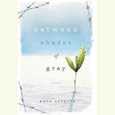Celebrating America's Homer
On the eve of the 150th anniversary of the Battle of Ft. Sumter, Chapter 16 considers the achievements of novelist and historian Shelby Foote
April 11, 2011 On April 10, 1861, Brigadier General P.G.T. Beauregard, who led the Confederate forces at Charleston, South Carolina, demanded that the Union surrender Fort Sumter in Charleston Harbor. U.S. Major Robert Anderson refused. On April 12, the Confederates opened fire in the opening battle of the Civil War. To mark the 150th anniversary of this epic conflict, the Modern Library is reissuing Shelby Foote’s masterful three-volume history of the war, and PBS is once again airing the Ken Burns documentary that prominently featured interviews with Foote. At Chapter 16, we’re celebrating Shelby Foote, too, with essays and reviews and commentary about the Memphis writer historians have dubbed our American Homer.
Today’s essay is by Hampton Sides, who grew up in Memphis. As a teenager, Sides played in a rock band with Foote’s son Huger, and the band practiced in the same house where the great man was writing his magnum opus, a three-volume narrative history of the Civil War. “Shelby Foote was the first writer I ever met,” Sides writes, “and the only writer I ever personally knew until I left my hometown of Memphis and went off to college. And so my image of what a writer was supposed to look like, sound like, and smell like, came first and foremost from him. I vaguely sensed even as a high-school teenager that I wanted to be a writer, but watching him, studying him, I couldn’t see how I could get there. I couldn’t see myself wielding a quill pen. My Southern accent was strong enough, but lacked Shelby’s beautiful custardy lilts and Delta diphthongs. And I knew I could never pull off a masterpiece of a beard like his.” Read the full essay here and an interview with Sides here.
Tomorrow look for an essay by Nashville novelist Alice Randall, whose first experience of Shelby Foote, like that of millions of Americans, came from hearing him speak in the Ken Burns 1990 documentary for PBS, The Civil War. More than a decade later, Randall had a more immediate encounter with Foote when a Georgia judge temporarily halted the publication of her first novel, The Wind Done Gone: “In 2001, when Shelby Foote was one of the writers who wrote to a Georgia judge on my behalf, I was surprised. Having Shelby Foote take my side against the Margaret Mitchell estate was a little like having Ashley take sides against Scarlett with an unacknowledged but not unborn daughter of Mammy’s. Of all the writers who stood with me—Toni Morrison, Pat Conroy, Harper Lee, Ishmael Reed, John Egerton, Tony Earley, Michael Kreyling, Larry McMurtry, and Arthur Schlesinger among them—no one had more to lose than Shelby Foote.” Check Chapter 16 tomorrow for the rest of the story.
On Wednesday, Clay Risen, author of A Nation On Fire, a narrative history of the riots following the assassination of Martin Luther King Jr., considers the achievement of Foote’s great three-volume history of the Civil War– both what makes it unique and why a narrative approach to the war would never be published today: “Indeed, part of the books’ enduring appeal is that while taken together they weigh more than a six-month-old child, they read like a well-wrought, sprawling novel; not for nothing did Foote worship at the altar of the great nineteenth-century Russian writers. ‘There is no great difference between writing novels and writing histories,’ he said. But Foote’s literary background also explains why his books exist in the first place: only a novelist could gather the vision and gumption to attempt writing them.” Check back Wednesday for the full essay. In the meantime, click here for Maria Browning’s interview with Risen himself about A Nation on Fire.
The Modern Library’s boxed set of Foote’s The Civil War: A Narrative includes a new collection of essays about Foote edited by Chattanooga native Jon Meacham, the former editor of Newsweek who won a Pulitzer Prize in 2009 for American Lion, his biography of Andrew Jackson. In his own essay in the new collection, Meacham undertakes a short biography of Foote himself, beginning with the story of how he came to be the voice of the civil war: “It was supposed to be a brief assignment—eighteen months or so, tops,” he writes. “In 1954, with the centennial of the end of the Civil War approaching, Bennett Cerf, the president of Random House, wrote the novelist Shelby Foote to propose a ‘short history’ of the conflict. In midsummer the author traveled from his home in Memphis to meet with the publisher in New York, and the two came to terms. The target was 200,000 words; the advance, four hundred dollars. For Foote the plan was to get the book done fast and return to writing novels. ‘Fiction is hard work,’ he recalled thinking; ‘history I figured, well, there’s not much to that.'” On Thursday, Chapter 16‘s Chris Scott reviews the new collection of essays, American Homer.
We expect an avalanche of media attention to Shelby Foote this week. Come back to Chapter 16 on Friday for a summary and links to the best of it. And, as always, for more updates on Tennessee authors, please visit Chapter 16‘s News & Notes page, here.

